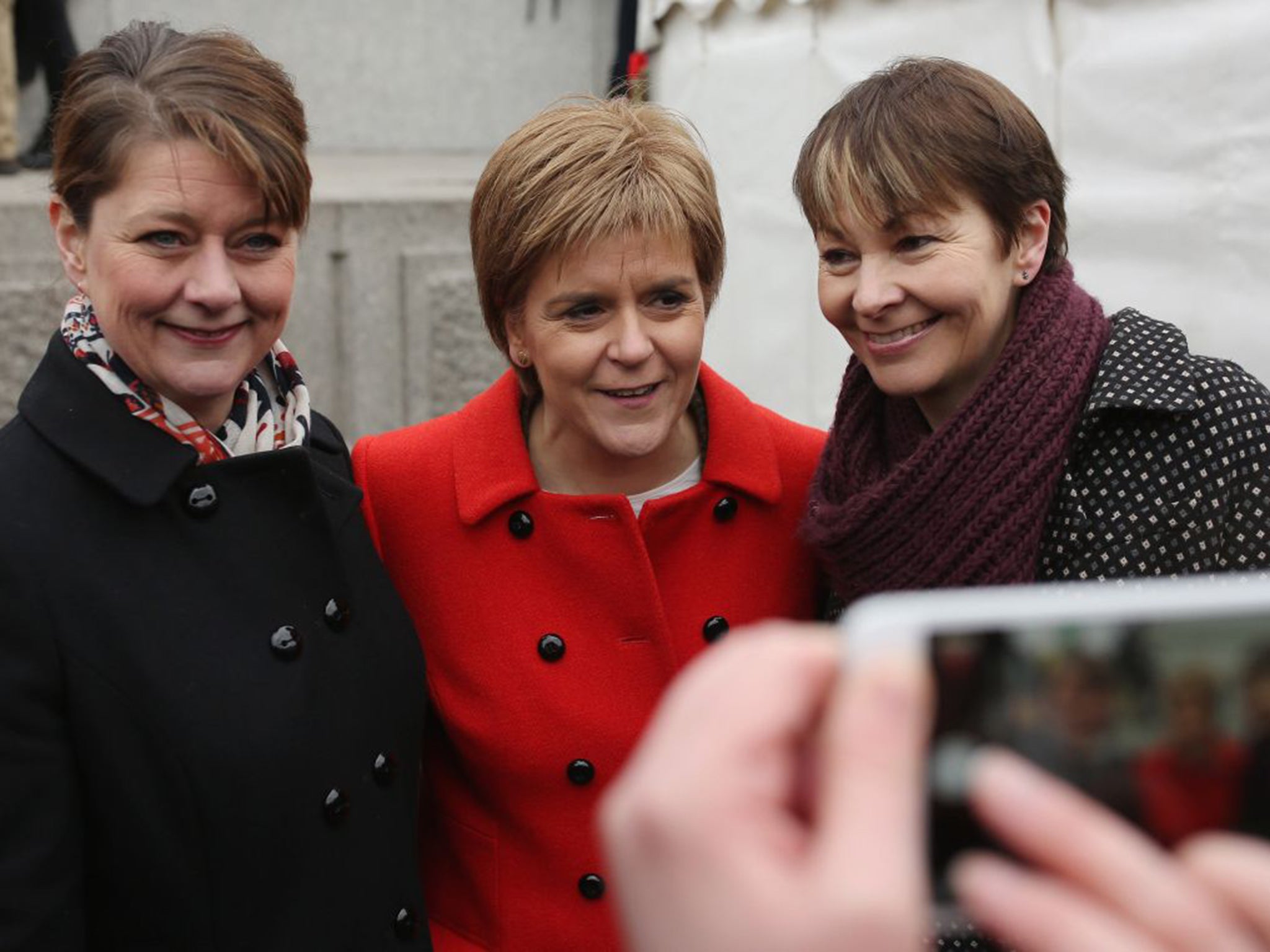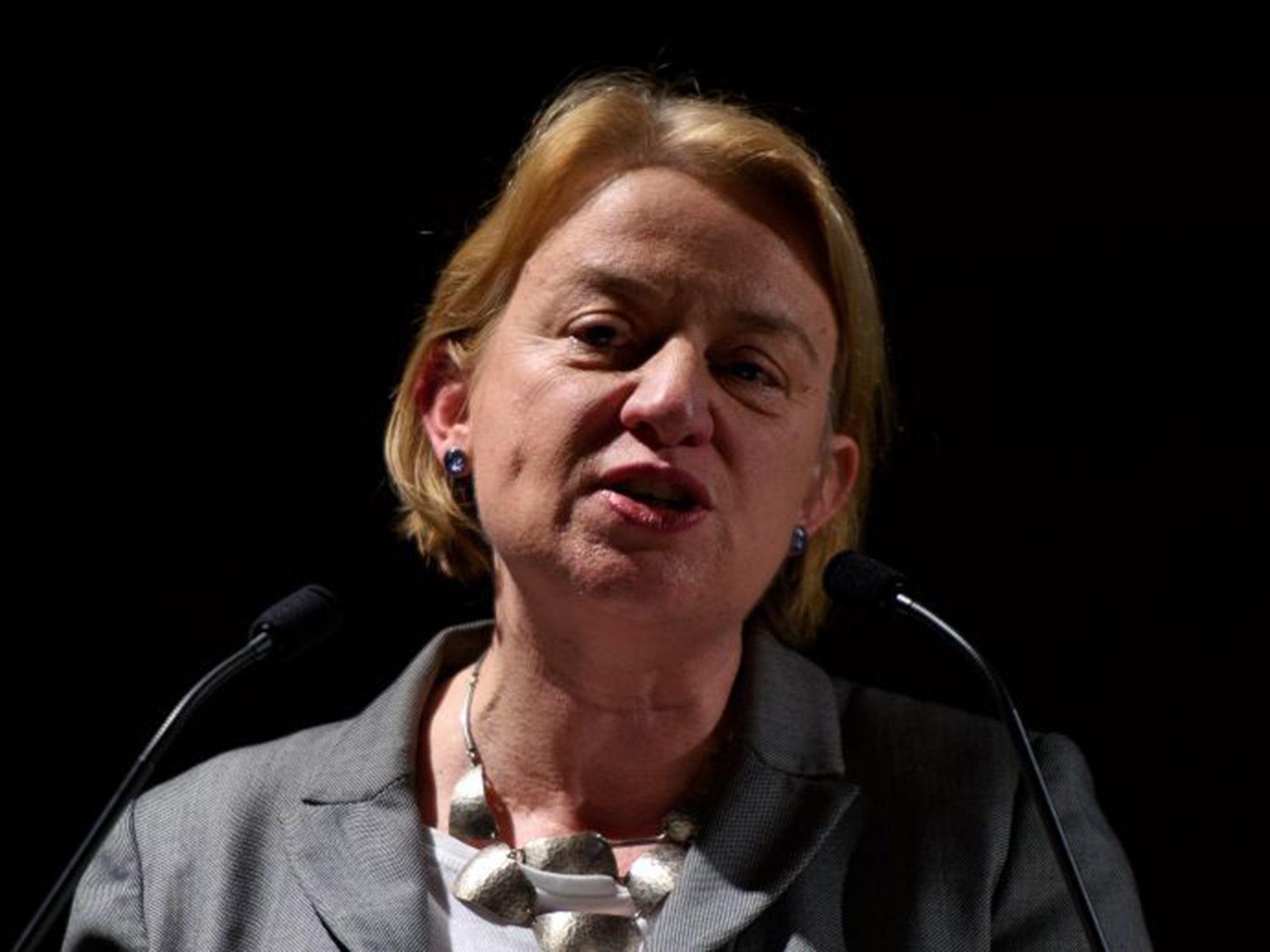Left-wing parties discuss 'progressive alliance' to defeat Tories
Exclusive: The left-of-centre parties could agree not to field candidates and split votes against the Tories

Your support helps us to tell the story
From reproductive rights to climate change to Big Tech, The Independent is on the ground when the story is developing. Whether it's investigating the financials of Elon Musk's pro-Trump PAC or producing our latest documentary, 'The A Word', which shines a light on the American women fighting for reproductive rights, we know how important it is to parse out the facts from the messaging.
At such a critical moment in US history, we need reporters on the ground. Your donation allows us to keep sending journalists to speak to both sides of the story.
The Independent is trusted by Americans across the entire political spectrum. And unlike many other quality news outlets, we choose not to lock Americans out of our reporting and analysis with paywalls. We believe quality journalism should be available to everyone, paid for by those who can afford it.
Your support makes all the difference.Left of centre parties could agree to stand down candidates in between 20 to 30 marginal seats at the next election in an effort to defeat the Conservatives, according to sources involved in creating a “progressive alliance”.
The Greens, the Scottish National Party, and Plaid Cymru called for sweeping reforms to the Westminster electoral system last month and vowed to include this in their manifestos. This followed The Independent on Sunday’s revelation that the Liberal Democrats and Labour were in discussions on changing the voting system as part of an alliance against the Conservatives.
It is understood that senior figures in several of these parties are now keen to push the idea of not standing a candidate where they would take another’s vote to the benefit of the Tories – or at least pour fewer resources into those seats. In 1997, Tony Blair’s majority and the Lib Dems haul of seats were boosted by tactical voting.
Labour, the Lib Dems and other centre-left parties face a difficult struggle in 2020, with the Conservatives’ proposal to reduce the number of MPs in the House of Commons from 650 to 600 likely to boost the Government’s electoral advantage.
Green Party MP Caroline Lucas, whose party is holding their spring conference in Harrogate this weekend, would not comment on the number of seats, but said: “My personal belief is that progressives need to look very carefully at the electoral arithmetic and begin to think about where we need to work together to beat the Tories. The boundary changes will intensify the need for these conversations …
“A prerequisite for a progressive politics of the future must be an acceptance that we desperately need a fairer voting system … I would like progressives to work together – on a local level – to give those in favour of a fairer politics a better chance of winning at the 2020 general election.
“With the chances of Labour winning a majority at the next general election vanishingly small, those of us who are serious about addressing the climate crisis, or halting and reversing the destruction of our welfare state, must find a way to work together – and do so quickly.”

Ms Lucas is co-editing, with shadow Energy Secretary Lisa Nandy and Lib Dem councillor Chris Bowers, a book of essays called Power to the People: Creating a New Progressive Alliance in British Politics. Contributors include Lord Hain, Labour’s former Welsh Secretary; the SNP’s Mhairi Black, who is the youngest MP since the 17th century; and Norman Lamb, the Lib Dems’ former health minister.
On 3 March, Ms Lucas will also weigh in on the EU referendum debate in a London School of Economics speech. A board member of Britain Stronger in Europe, she is expected to warn that her side needs a decisive victory to put an end to the argument. For example, the Scottish independence referendum, where 45 per cent voted for secession, was close enough for the SNP to talk of a second poll. If the UK does vote for Brexit, the SNP will demand a second referendum on the basis that Scotland is likely to vote to remain a member of the EU.
Ms Lucas is expected to say: “It is not alarmist to talk of the risks involved in this referendum. Those who want us to leave do so all the time. The favoured phrase is ‘the end of 1,000 years of British history’. Well, if we have a split vote on 23 June [polling day], then we may indeed see the end of Great Britain. That is why the challenge we face in the referendum campaign is not only to win. We must aim to win big.
“The pro-European campaign in 1975 won 66 per cent of the vote. We might not repeat this is 2016. But we must aim for more than just making it over the finishing line with 51 per cent of the vote.
“The clearer the victory, the easier it will be to move on from this sterile debate on membership, to the real issue of how we can build the kind of Europe that we want.”
Join our commenting forum
Join thought-provoking conversations, follow other Independent readers and see their replies
Comments